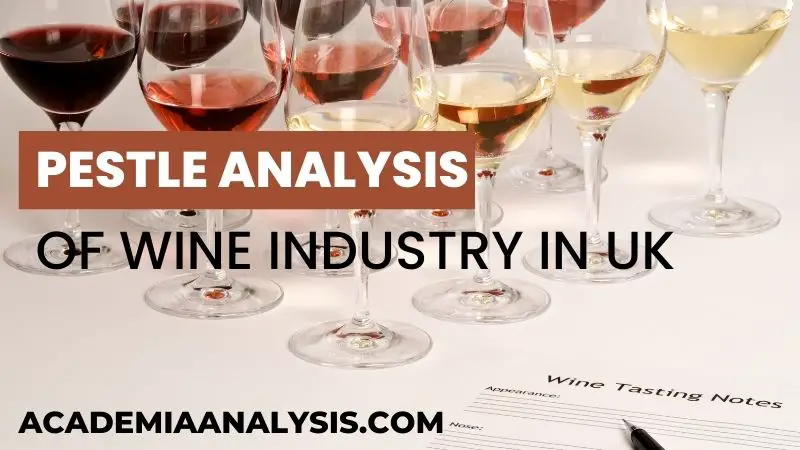The wine industry in the United Kingdom has a rich history dating back to Roman times, when vineyards were first established. Today, the industry has undergone significant growth and transformation, with over 500 vineyards now spread across the country.
The UK has become a major player in the global wine market, with its sparkling wines gaining international recognition for their quality and sophistication. The industry has also benefited from advancements in technology and techniques, which have helped to improve the quality and consistency of British wines. In this context, it is worth exploring the history, development, and current state of the wine industry in the UK, as well as the challenges and opportunities that lie ahead.
Political Factors
There are several political factors that can affect the wine industry in the UK, including:
Trade Policies: The wine industry in the UK is heavily reliant on international trade. Changes in trade policies, such as tariffs or trade agreements, can affect the price and availability of imported wines.
Brexit: The UK’s exit from the European Union has had a significant impact on the wine industry. The UK has had to renegotiate trade deals with countries around the world, including the EU, which has caused uncertainty and disruption for businesses in the industry.
Taxation: The UK government sets tax rates on alcohol, including wine. Changes in tax rates can impact consumer demand and profitability for wine producers and sellers.
Licensing Laws: Licensing laws in the UK can affect the sale and distribution of wine. For example, restrictions on the sale of alcohol at certain times or in certain areas can impact the profitability of wine businesses.
Health Regulations: Health regulations, such as warning labels or restrictions on advertising, can impact the marketing and promotion of wine products.
Overall, political factors can have a significant impact on the wine industry in the UK, affecting everything from trade to taxation to marketing and sales
Economic Factors
The wine industry in the UK is influenced by a range of economic factors. Some of the most significant factors include:
Exchange rates: The value of the pound against other currencies can affect the cost of imported wine. A weaker pound can make imported wine more expensive, while a stronger pound can make it cheaper.
Taxes: The UK government imposes taxes on alcohol, which affects the price of wine. The current tax rate on wine is £2.23 per 75cl bottles. This tax rate can impact the affordability of wine for consumers.
Income levels: The level of disposable income that consumers have available to spend on wine can impact demand for wine in the UK. As the economy improves and incomes rise, consumers may be more willing to spend money on wine.
Competition: The wine industry in the UK is highly competitive, with a range of domestic and international producers vying for market share. Competition can drive down prices, which can benefit consumers, but it can also make it challenging for smaller producers to compete.
Brexit: The UK’s exit from the European Union has had an impact on the wine industry. Changes in tariffs and import/export regulations can affect the cost and availability of wine in the UK.
Overall, these economic factors can impact the demand for and supply of wine in the UK, as well as the prices that consumers pay for wine.
Social Factors
The wine industry in the UK is influenced by a range of social factors:
Changing consumer preferences: The wine industry is heavily influenced by changing consumer preferences. In recent years, there has been a trend towards drinking more premium wines, organic and sustainable wines, and wines from lesser-known regions. Consumers are also increasingly interested in the stories behind the wines they drink, such as the production process, the winemaker’s philosophy, and the environmental and social impact of the wine.
Drinking culture: The UK has a long-standing drinking culture, and wine is often consumed as part of social gatherings, dinners, and celebrations. The industry is also influenced by wider social trends around alcohol consumption, such as a growing interest in low- or no-alcohol alternatives, responsible drinking campaigns, and the increasing popularity of wine-based cocktails and spritzers.
Demographic changes: The UK population is changing, with an ageing population and increasing diversity. This is likely to influence the types of wines that are consumed, with older consumers tending to prefer more traditional wines, while younger consumers are more likely to be interested in new and innovative wines from different regions.
Health and wellness trends: Consumers are increasingly interested in health and wellness, and this is likely to impact the wine industry. There is growing interest in low-sugar and low-alcohol wines, as well as wines made with organic and natural ingredients. Wine companies are responding to these trends by developing new products that appeal to health-conscious consumers.
Social media and online communities: The rise of social media and online communities has had a significant impact on the wine industry, allowing consumers to share information and opinions about different wines, wineries, and regions. Social media platforms such as Instagram and Twitter have become important marketing tools for wineries, enabling them to reach a wider audience and engage with consumers in new ways.
Technology Factors
The wine industry in the UK has been influenced by various technology factors:
Climate-controlled storage: The UK’s unpredictable weather conditions make it challenging to store wine. Therefore, the wine industry has invested in climate-controlled storage to maintain the quality of wine.
Online sales: The rise of e-commerce has made it easier for UK wine companies to sell their products online. This has helped small wine producers to reach a wider audience, and customers to access a wider variety of wines.
Social media: Social media platforms such as Instagram and Facebook have become essential marketing tools for the wine industry in the UK. Producers and sellers can use social media to showcase their products and engage with customers.
Wine apps: Wine apps have become increasingly popular in the UK, providing customers with information about different types of wines, ratings, and reviews. This has made it easier for customers to select wines and also provides an opportunity for producers to promote their products.
Precision viticulture: Precision viticulture is a technology that uses data analysis to optimize the growing and harvesting of grapes. This technology has helped UK wine producers to improve their production efficiency and quality of wine.
Sustainable practices: The use of technology in the wine industry in the UK has also contributed to the promotion of sustainable practices. For example, precision viticulture can help reduce the amount of water and pesticides used in grape production, leading to more sustainable wine production.
Legal Factors
There are several legal factors that affect the wine industry in the UK. Some of the key legal factors are:
Licensing Laws: In the UK, all businesses that sell or serve alcohol are required to have a license. The license application process can be complex, and it’s important to comply with all the regulations and requirements.
Duty and Taxation: The UK government imposes excise duty and value-added tax (VAT) on all alcohol sales. These taxes can significantly impact the price of wine, and businesses need to ensure that they comply with all the relevant tax laws.
Labeling Requirements: Wine bottles sold in the UK must comply with strict labeling requirements, including information about the producer, the vintage, the alcohol content, and any potential allergens. These requirements are designed to protect consumers and ensure that they have access to accurate information.
Health and Safety Regulations: Wine businesses in the UK must comply with strict health and safety regulations, including requirements for food hygiene, fire safety, and risk assessments. These regulations are designed to ensure that customers and employees are safe and healthy.
Advertising Regulations: The advertising of alcohol is heavily regulated in the UK, and businesses must comply with strict rules around the content and placement of alcohol advertisements. These regulations are designed to prevent excessive consumption and protect vulnerable groups such as young people.
Overall, businesses operating in the UK wine industry must comply with a range of legal requirements to ensure that they operate legally and responsibly.
Environmental Factors
There are several environmental factors that can impact the wine industry in the UK:
Climate: The climate in the UK can be unpredictable and variable, which can make it difficult for wine growers to produce consistent crops. In recent years, warmer temperatures have been beneficial for grape growing in some regions, but the threat of frost, rain, and hail can still pose challenges.
Soil quality: The type and quality of soil can affect the taste and quality of grapes grown in the UK. Some regions have chalky or clay soil, while others have sandy soil. Growers must carefully manage the soil to ensure that it provides the right nutrients for the grapes to thrive.
Water availability: Water is essential for grape growing, but drought conditions or water shortages can impact the growth and quality of the grapes.
Pests and disease: Grapevines are vulnerable to a variety of pests and diseases, which can be more prevalent in certain environmental conditions. Growers must monitor their vineyards and take steps to control pests and diseases to ensure healthy grape production.
Land availability: Finding suitable land for grape growing can be a challenge in the UK, as much of the available land is already being used for other purposes.
Sustainability: The wine industry in the UK, like other agricultural sectors, is increasingly focused on sustainable practices to reduce environmental impact and ensure the long-term viability of the industry. Factors like soil erosion, water usage, and carbon emissions are all considered in sustainable vineyard management.






